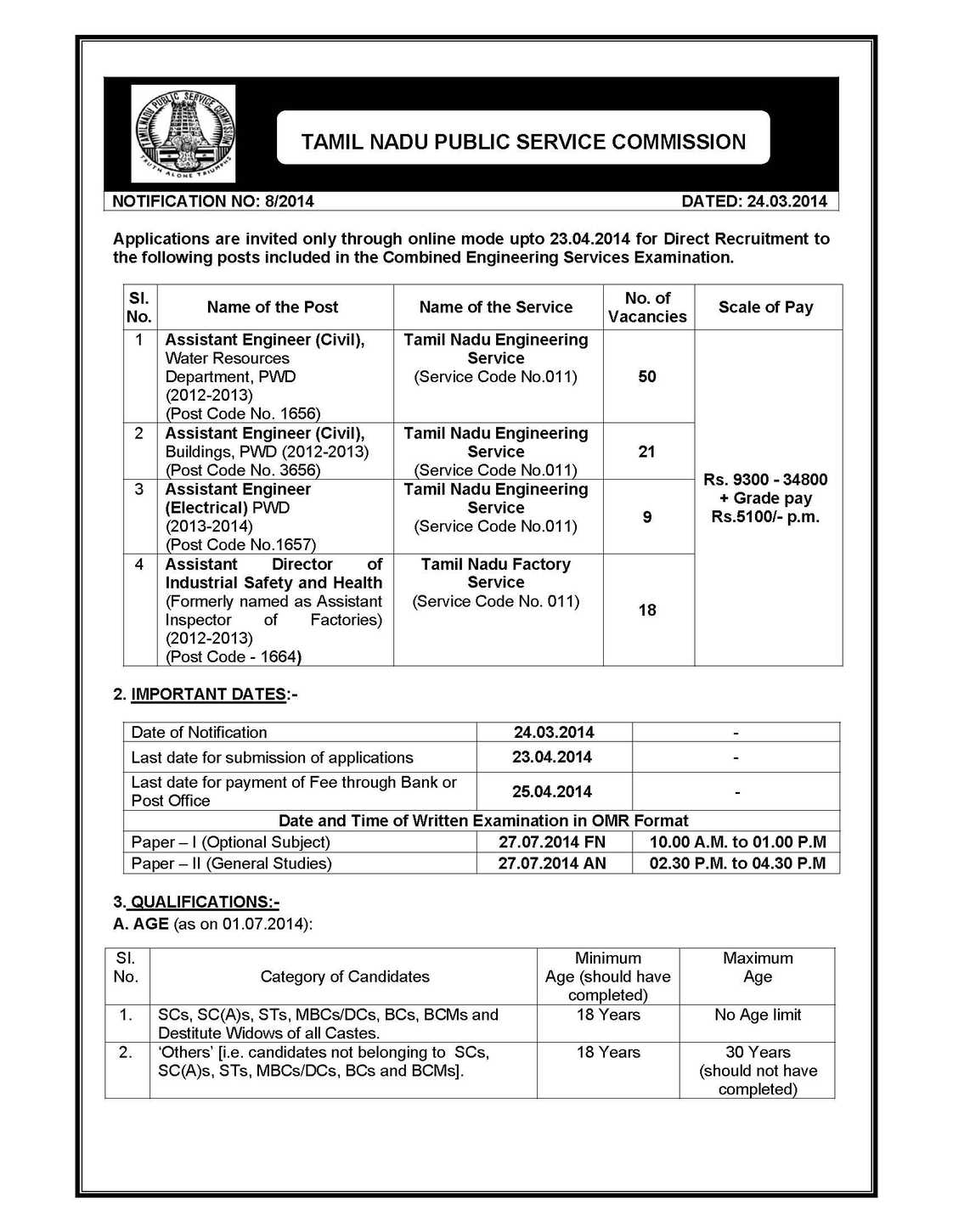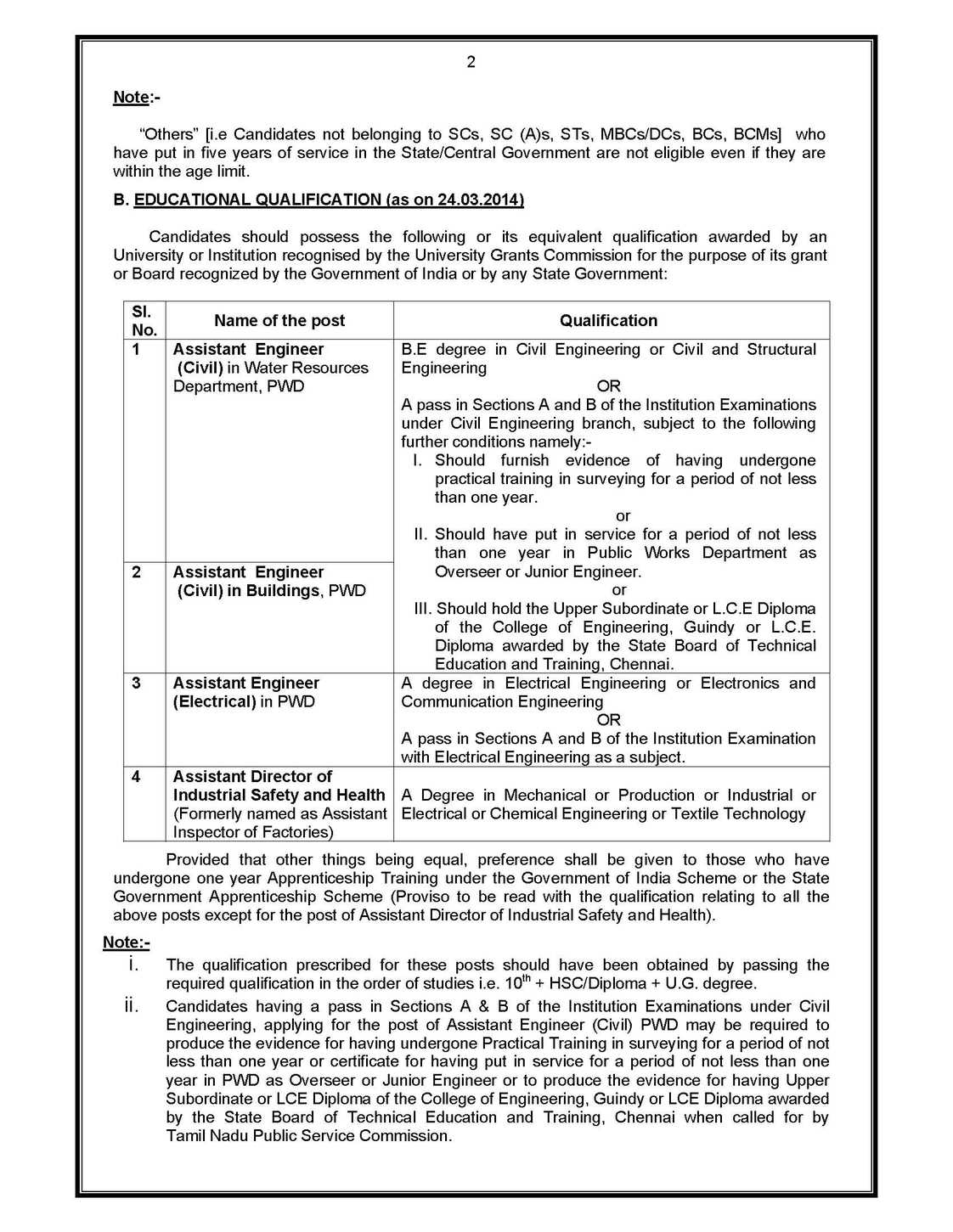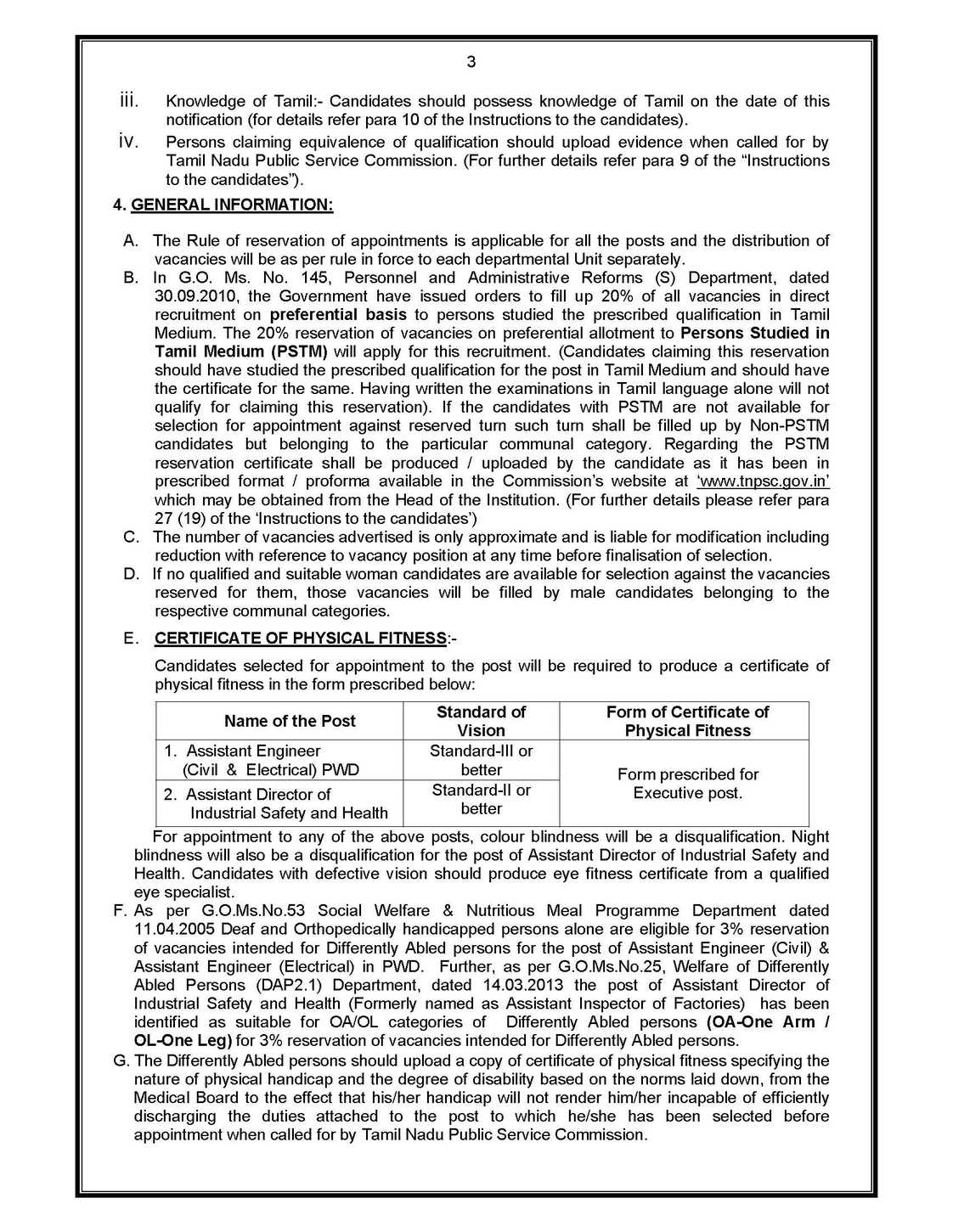|
#1
June 1st, 2016, 09:33 AM
| |||
| |||
| CESE TNPSC Syllabus
Sir I am looking for the syllabus of the Combined Engineering Services Examination CESE for the TNPSC syllabus for the Electrical & Instrumentation Engineering Hey buddy below I am giving you the syllabus of the Combined Engineering Services Examination CESE for the TNPSC syllabus for the Electrical & Instrumentation Engineering you can have a look Electrical & Instrumentation Engineering Degree Standard PAPER-I Code No: 042 1. FUNDAMENTALS OF ELECTRICAL ENGINEERING Dc And Ac Series And Parallel Circuits - Kirchhoffs Law - Network Graph - Matrix Representation - Solution Of Steady State, equations - transients in AC networks - Network theorems, super position, reciprocity, Thevenin and Norton's theorems, Maximum power transfer therorem, star delta transformation - frequency response of RL, RC, RIC series and parallel circuits - solutions of balanced and unbalanced 3 phase circuits. 2. ELECTRICAL MACHINES Constructional features of DC Machines, emf equation and characteristics of different types of DC generators - DC motor - torque equation - DC motor characteristics - starters of DC motors speed control of DC motors - testing of DC motors - alternators - different types - constructional features - emf equation - regulation of alternators by different methods - phaseor diagram - expression for power developed as a funtion of torque angle - synchronous motors - principle of operation - v and inverted v curves - starting methods - stepper motors - principle of operation - polyphase induction motors - principle of operation phasor diagram and equivalent circuit - starting and speed control - single phase ixluction motor - principle of opetation and applications - transformers - principle of operation and construction of types different of single phase and three phase transformers - regulation,efficiency and all day efficiency. 3. CONTROL SYSTEMS Open loop and closed loop systems - mathematical modelling of physical systems - electrical, mechanical, electro mechanical, hydraulic, pneumatic and thermal systems - transfer function and state space modelling of these systems - block diagram representation and signal flow graph - electrical analog - time response of simple system for implulse, step and ramp type of inputs - solution of state equations - STM - time domain specifications - frequency domain analysius - polar, inverse polar, bode - constant M and N circles and Nichols chart frequency domain specifications - Routh-Hurwitz stability criterion - Nyquist stability criterion - construction of root locus - determination of closed loop poles - transient response and stability from root locus 4. GENERATION TRANSMISSION AND DISTRIBUTION Sources of energy - power plants - hydroelectric - nuclear - thermal - layout - storage schemes - turbines - hydroelectric and steam - interconnected systems - cost evaluation - nuclear reactors - fuel materials - coolant - comparison and detection of different types of power plants - transmission lines - performance - short and medium - corona - insulators - transmission towers - underground cables - distrubution - feeders - distributors and service main - comparison of distribution system - radial and ring distributors - calculation of voltages and distributors with concentrated and distributed loads. 5. PROTECTION AND SWITCH GEARS Circuit breakers - Arc in oil - Arc interruption - theories - current chopping - oil circuit breakers - air blast circuit breakers - vacum circuit breakers - sulphur hexaflouride - circuit breakers - testing of circuit breakers - protective relays - functional charactoristics of protective relays - operating principles of relays - overcurrent relays - directional over current relays - the universal relay - torque equation - differntial relays - feeder protection - distance protection - generator protection - protection of transformers - carrier current protection - comparators - static relays - fuses and H.R.C.fuses for relays (the emphasis must be on solid state devices). 6. BASIC ELECTRONICS Semi conductor diodes - zener diodes - transistors - FET's power diodes - thyristors - photocell - photodiodes - power diodes - photo transistors,L.D.R.and applications - rectifiers and voltage regulators - amplifiers - classification of amplifiers - power amplifiers - wide b and amplifiers - oscillators - operational amplifiers - application of operational amplifiers - Indusstrial timers - voltage regulators - Instruementation amplifiers - A to D and D to A converteros - PLL - active filters. 7. DIGITAL TECHNIQUES Number systems used in Digital electronics -weighted binary codes - non weighted codes - crror detection and correction,alpha numeric codes,BCD- development of    Last edited by Neelurk; May 9th, 2020 at 10:40 AM. |